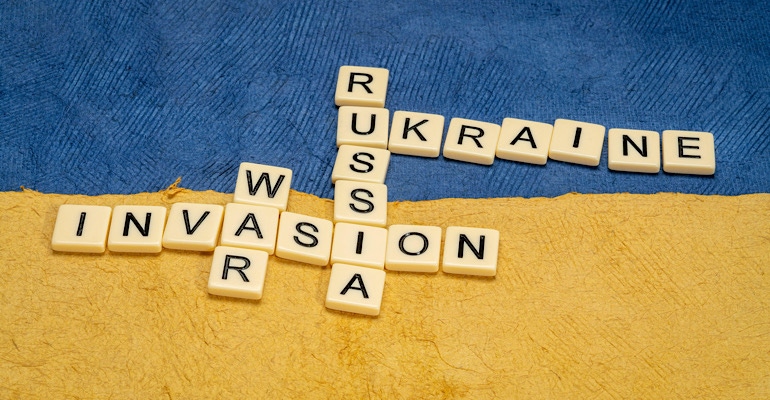Medtech Weighs in on the War in Ukraine
How is medtech responding to the conflict between Ukraine and Russia?
March 4, 2022

As Russia’s invasion of Ukraine rages on, medtech companies and executives are speaking out about the war.
Some companies like Conformis are opting not to do business in Russia. The Bedford, MA-based custom-orthopedics-company was one of the first firms to make the declaration that it was suspending operations in Russia.
“To support our continued expansion into international markets, we had recently entered into a distribution arrangement for representation of our orthopedic devices in Russia,” said Mark Augusti, CEO and President of Conformis. “While we were looking forward to working with our agents and surgeons in Russia, we believe it is important that our business aligns with our values. Therefore, we have notified our representatives that we would not be starting our distribution operations in Russia. We will monitor this closely and look to resume development when appropriate.”
Augusti added, “The orthopedic industry strives to make life better for patients and their families. We feel empathy for the Russian people and potential patients of Conformis, who may have benefited from our products. However, given the unnecessary and unprovoked military invasion of Ukraine instigated by the Russian leadership, we can no longer in good conscience, sell our products or services in the Russian market. We urge other global companies to respond in similar fashion. Our thoughts and prayers go out to the people of Ukraine and the relatives of Conformis employees who live there.”
Siemens Healthineers is taking a slightly different route. While the diagnostics powerhouse is condemning Russia’s actions, the company said it will still offer services to the Russian people.
In an email sent to MD+DI from Siemens Healthineers the company wrote, “As a medical technology company, our priority remains to support medical professionals and patients in every circumstance and in every country. We believe that sanctions should not have adverse humanitarian consequences for the civilian population and hope we will be able to continue to support those who need us in both Ukraine and Russia. We are complying with all relevant and applicable export control requirements and sanctions laws. The sanctions do not target the healthcare business directly, but we do expect an indirect negative impact on our business. We hope we will be able to continue to support our customers and their patients. Article 25 of the Universal Declaration of Human Rights includes the right to medical care.”
The email went on to read, “Siemens Healthineers strongly condemns the invasion by Russian forces of Ukraine, a sovereign European nation, in clear violation of international law. We are moved by the courage of the Ukrainian people.”
Some firms and organizations are taking a more direct approach – including taking up supplies for the people of Ukraine. Late Friday afternoon, The Advanced Medical Technology Association (AdvaMed), a trade organization representing medical technology and device companies said it tracking U.S. government information on the medical supplies needed in Ukraine. AdvaMed created a resource list on its website for those seeking ways to contribute medical supplies, work with charitable organizations, and/or provide other types of aid that can be found here: https://www.advamed.org/2022/03/03/advamed-resources-for-ukraine-humanitarian-needs/.
Boston Scientific told MD+DI in an email that this is a humanitarian crisis and discussed its strategy to help the people of Ukraine.
“We are responding by working to keep colleagues in the region safe, to support ongoing access to healthcare, and donating to the International Red Cross through the Boston Scientific Foundation Europe,” the company wrote. “We will also match employee donations to designated organizations supporting relief efforts.”
On Johnson & Johnson's Linkedin page, the New Brunswick, NJ-based company said it is donating $5 million to support the work of the International Rescue Committee (IRC) and International Federation Red Cross and Red Crescent to provide humanitarian support for refugees in the border countries.
Providing product donations including hygiene kits, health packets, and medical supplies. Launching an unlimited matching program for our global employees with Global Giving Ukraine Crisis Relief Fund.
And will continue to work with our longstanding partners in global health—International Health Partners (IHP, UK), Americares (US), Direct Relief (US), IFRC, Save the Children, and UNICEF—to support those in the region by providing them access to our supply chain network to strengthen their reach and capabilities.
A report from Reuters citing data from the U.S. government shows that in 2021, pharmaceuticals and medical equipment represented about 8% of all U.S. goods exported to Russia. The Reuters report goes on to say that in 2021 the U.S. sent about $355 million worth of medicines and $157 million worth of medical equipment to the country.
About the Author(s)
You May Also Like



.png?width=300&auto=webp&quality=80&disable=upscale)
